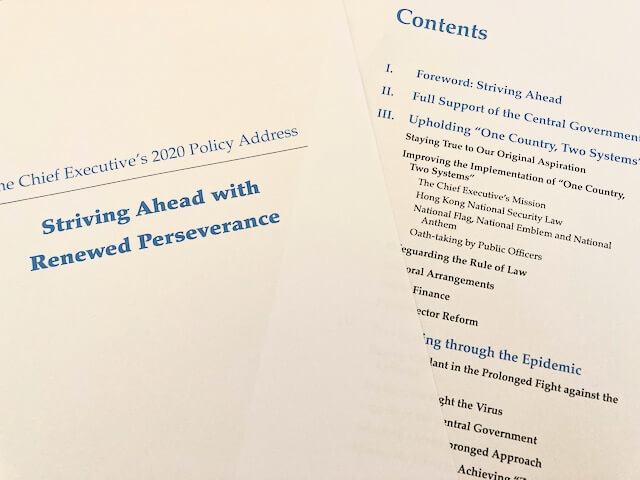Hello. I'm Mike, a lawyer living in Hong Kong.
HONG KONG WILL BE THE CENTRE OF THE GREATER BAY AREA (GBA) IN THE FUTURE, BUT YOU NEVER KNOW WHEN CHINA WILL CHANGE ITS POLICIES. CHINA IS NOT A DEMOCRACY, IT CAN IMPOSE REGULATIONS AT ANY TIME AND CHANGE THE RULES AS IT SEES FIT. BUT
Don't worry, we've got you covered.
The fact that China is a socialist state, or more properly, a one-party despotism, is not synonymous with the fact that policies and regulations can be changed at any time at the convenience of the party. Whether democracy or despotism, the question is how the resulting elected rulers govern the country.
We were taught from birth that democracy was the right thing to do, and we lamented the Tiananmen Square protests and protested the suppression of the democratic movement in Hong Kong. We thought it was unfortunate that a despotic country like China could not become a democracy. But when you think about it, we only believe that democracy is the absolute truth because the hegemonic United States and the hegemonic Britain before it happen to be democracies today.
China, on the other hand, has never been a democracy in its long history and has been ruled by emperors and presidents. It is based on the Chinese ideology that the Son of Heaven is the centre of the world, and as long as China is China, it will never become a democracy. That is the absolute truth for China.
Both democracy and despotism entrust the rule of the state to a single representative, the difference being the method of election, whether by the sovereign people or by a monarch or other authority. It is up to the elected ruler whether the country prospers or not and whether the ruler enjoys the support of the people or not.
Since democracy reflects the consensus of the sovereign people, the ruler is presumed to be the "right" person, supported by the people, when elected. This system itself guarantees the legitimacy of the ruler, and the results of governance are a confirmation of that legitimacy. In the event of a poor performance, the person is not elected at the next election and another person becomes the ruler.
In despotism, on the other hand, the appointment does not reflect the will of the people and there is no presumption of "rightness" at the time of appointment. The only way for a ruler to gain the support of the people as a righteous and superior person is to show by the results of developing the country. If a country is unfortunate enough to be ruled by an incompetent person, it will either be invaded by another country and perish, or there will be a revolution.
Even despotic states can have good rulers. Singapore is a good example. When the ruler of a despotic state is good, the state will be stable and prosperous based on long-term planning.
Results are also important in China to show the people that the ruler is right and to gain their support. If you look at China's economic growth from Deng Xiaoping to Xi Jinping, no one can argue with that.
Let us return to Hong Kong.
Hong Kong has never been a democracy; it was a British colony before it was returned to China in 1997, and after it was returned to China, it is one of China's administrative regions, so it is a despotism. Therefore, it is important to know how the ruler, Xi Jinping, thinks about Hong Kong and how Hong Kong's Chief Executive, Carrie Lam, will govern the city.
In Hong Kong, the annual Policy Address by the Chief Executive explains in detail what Hong Kong plans to do and what it will do in the future. Carrie Lam gave this address in October, so the latest is last year's 2020 Policy Address, but if you read it, you can see in detail what China thinks of Hong Kong, what Hong Kong will be like in the future, how the GBA will develop in the future, how the science park and other technological developments will be carried out, and many other things. How will they do it, and many other concrete things. It is exciting to read this.
We will explain in the next issue.



